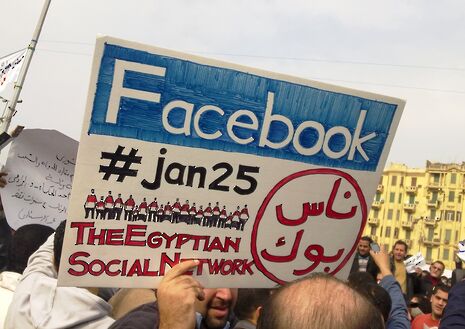Modern evil or freedom from the press?
Seán Thór-Herron asks whether reaching for the unfollow button is a reasonable response to social media politics

Is it a bird? Is it a train? Does it have a number of available, unreserved seats in proximity to one another? Branson says yes, Corbyn says no. Such was the hot issue flooding our social media streams over the last couple of weeks. As the isolating embrace of term time in Cambridge draws near and threatens to cut that stream into a trickle, it is worth considering what we are likely to miss.
Social media plays an important part in modern political discourse for many students. Articles on relevant issues are found, liked, linked and tweeted. Indeed, sometimes the news is determined by social media, with the collective condemnation of an offhand comment being all that is necessary to prompt a TV or radio-based grilling of politicians the morning after.
The most obvious example of this recently in the UK is the #traingate controversy over whether or not Labour leader Jeremy Corbyn could have found a seat on the 11:00 Virgin Trains East Coast service from London King’s Cross to Newcastle. This story was manufactured entirely by and for social media, unfolding (perhaps interestingly) amid the Labour leadership contest.
Some despise political posts on their news feed, avoiding debate or controversy. Others take the time to scribe a veritable magnum opus covering their wall. Most of us consume moderately from the corner and only input occasionally. But how useful is social media in helping us form our political opinions? Should we be reaching for the unfollow button?
With regards to the Corbyn train controversy, I know my own opinion on the event has been influenced by social media. Contention with the Virgin story (of which the video footage was quite possibly illegal for them to release) by passengers on board cast new light on a story that most of the press seemed already to have agreed upon: Corbyn lied. In this way social media can be a road to a (potential) truth that established media outlets seem uninterested in showing, electing instead to push one story or one agenda.
The late Christopher Hitchens wrote in his memoirs, Hitch-22, that he became a journalist partly so that he “wouldn’t ever have to rely on the press” for information, and commented that he was grateful he knew like-minded individuals living in the Middle East who could give him unbiased information on situations there. Today, social media affords that same privilege to the masses. It is easy now to access unfiltered information from people actually experiencing the events we read about.
This is both good and bad. Sometimes, people’s opinions or eyewitness accounts could be exaggerated or uninformed – potentially clouding the truth. We also tend to seek out and more easily trust opinions or evidence backing up our own feelings, and so often we see internet forums turning into echo chambers for a particular group or point of view. And in these forums and elsewhere, often what begins as an informal political debate descends into name calling and abuse, complete with the total fabrication of facts or accounts to support a cause. Overall, however, this modern source of information generates a wider, more open discussion that is free of the auspices of the established press. It helps the informed reader to make a better judgement for themselves.
At its base, of course, social media is just people talking, and so I liken this mostly to discussing politics in a pub. You get interesting, unique opinions that you may agree or disagree with. You also get an online, political equivalent of pub science: people using information they don’t fully understand to push an agenda regardless of the truth.
Reading the political views of friends and strangers alike also allows us to place our own views within the common political landscape. If you had listened only to the established media right across the spectrum just after Jeremy Corbyn was elected, you would have been forgiven for thinking an escaped mental patient had been appointed as the Labour leader. Of course, today, I am sure that some people would still be ready to accept that view. Nonetheless it was through social media that a lot of people realised that they were not alone, for better or worse, in feeling that the Labour Party had pandered too much to the neo-liberal paradigm dominating European politics today and had moved away from being a party supporting true social democracy.
Just as it is easy to find those who support your own views, it is easy to find those with opposing ones to enlighten the mind. My supervisor once told me to “keep an open mind, but not so open that your brains fall out”. While it is natural for some to react with anger or apathetic disdain, to the open-minded reader applying a healthy dose of scepticism, social media politics is a useful resource which, whether we like it or not, is here to stay.
 News / Eight Cambridge researchers awarded €17m in ERC research grants27 December 2025
News / Eight Cambridge researchers awarded €17m in ERC research grants27 December 2025 News / News in Brief: carols, card games, and canine calamities28 December 2025
News / News in Brief: carols, card games, and canine calamities28 December 2025 News / Caius mourns its tree-mendous loss23 December 2025
News / Caius mourns its tree-mendous loss23 December 2025 News / Clare Hall spent over £500k opposing busway 24 December 2025
News / Clare Hall spent over £500k opposing busway 24 December 2025 Interviews / Meet Juan Michel, Cambridge’s multilingual musician29 December 2025
Interviews / Meet Juan Michel, Cambridge’s multilingual musician29 December 2025








